
The Truth In This Art with DJ Stylo
In this episode of “The Truth in This Art,” host Rob Lee interviews music producer and DJ Stylo. Stylo shares his journey from a nerdy kid in DC with a […]
 play_arrow
play_arrow
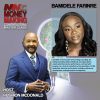 play_arrow
play_arrow
 play_arrow
play_arrow
SUPERBOWL recap | BAD BUNNY | Cardi B broke up with Diggs | Black History Month | Episode 161 podcast
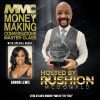 play_arrow
play_arrow
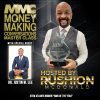 play_arrow
play_arrow
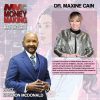 play_arrow
play_arrow
Making A Difference: She empowers women and young girls through STEM education and careers. podcast
 play_arrow
play_arrow
FULL SHOW: Unexpected Pleasantries, Strawberry Letter: I’m In Love With Her Fiance – 2.12.26 podcast
“Worthy of Belonging” – Intersectional Storytelling Roundtable podcast
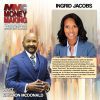 play_arrow
play_arrow
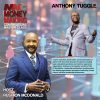 play_arrow
play_arrow
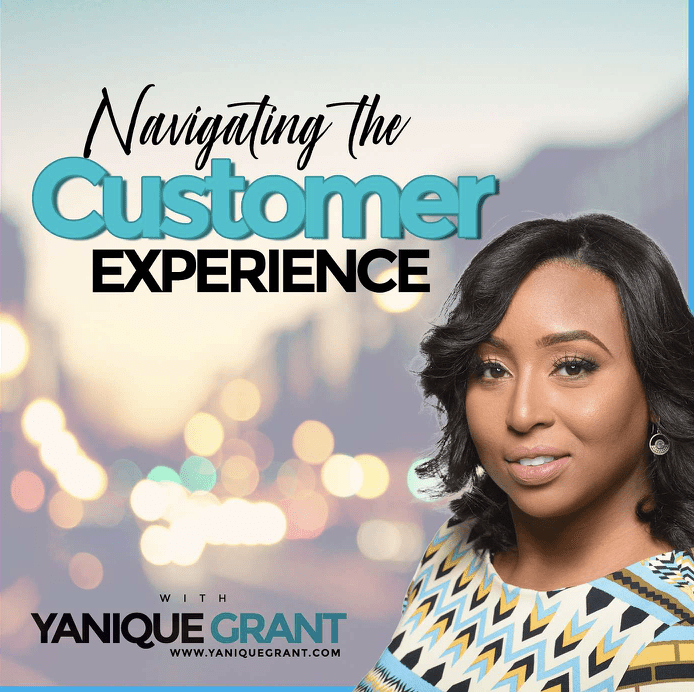
Alan Williams is the founder of SERVICEBRAND GLOBAL and advises business leaders internationally to deliver value driven service.
Dave Stubberfield is the director of Carter Consultancy and specializes in enabling cultural transformation to help businesses achieve greatness. They are the authors of Supercharging the Customer Experience: How Organizational Alignment Drives Performance.
Questions
· We always like to ask our guests if they could share in their own words a little bit about their journey. So basically, how it is that you got from where you were to where you are today.
· Now, the both of you teamed up together and wrote this awesome book Supercharging the Customer Experience. Can you share with our listeners a little bit about the book, maybe two or three overarching themes that the book focuses on and who is the book geared towards?
· What are maybe two or three behaviors that you believe is critical for customer success in a business both from an employee perspective and from the leadership perspective.
· So, could you share maybe just some insight for us on what you believe is the future of AI as best as you can, because AI does cover a lot of stuff. But what do you believe is the future of AI? And how will that impact human interaction?
· So, can you also share, and each of you can give me your answer to this particular question. What’s the one online resource, tool, website or app that you absolutely cannot live without in your business?
· If you could share with me maybe a book that you read recently, or even a very long time ago, but it has still had a very great impact on you, whether from a professional capacity or even a personal development capacity.
· Now, can you also share with us what’s the one thing that is going on in your life right now that you’re really excited about, either something you’re working on to develop yourself or your people.
· Where can listeners find you online?
· Now, before we close off the episode, we always like to ask our guests, do you have a quote or a saying that in times of adversity or challenge you will tend to revert to this quote if for any reason you get the real or you get off track, the quote kind of helps to get you back on track. Do you have one of those?
Highlights
Alan and Dave’s Journey
Me: We always like to ask our guests if they could share in their own words a little bit about their journey. So basically, how it is that you got from where you were to where you are today.
Alan Williams: Alan shared that he started off in commercial hospitality management. So, he remembered being at school thinking, he wants to go to university, but he wants to do a degree that’s going to help him get a job.
And he really didn’t like the idea of what he at that time considered to be really boring businesses like banking, where you’re sat in an office all day. And he was lucky enough to get a holiday job in a hotel, and he thought that’s it, exciting, looking after people, fun.
So, that was the beginning. And then he moved somewhat later in his career into workplace management. So you might know it as facilities management, so all of the services in workplaces offices, and he referred to them those offices actually, as they’re really hotels with desks instead of beds, that’s the only difference. And then he set up SERVICEBRAND GLOBAL in 2005, and he’s been helping progressive leaders in organizations around the world since then, using what he learned in the hospitality sector.
Dave Stubberfield: Dave shared that for him, he guesses similar to a degree. So, he was just about leaving school and the careers advisor said, you’ve got the potential to go to university, but he didn’t really know what for. So, he decided against it and tried the apprenticeship route in the corporate space, which he loved, and a lot of customer facing roles. Then there was an initiative called Lean, where he became kind of a Six Sigma qualified individual. And then it just kind of spiraled into attaching customer experience to the continuous improvement framework, really. And how changes adapt in organizations. And then, 2020 set up Carter Consultancy, and he hasn’t looked back since. So yeah, he loves what he does.
About Alan and Dave’s Book – Supercharging the Customer Experience and Three Overarching Themes the Book Focuses On
Me: All right, thank you so much, gentleman. Now, the both of you teamed up together and wrote this awesome book Supercharging the Customer Experience. Can you share with our listeners and either of you can answer this question, a little bit about the book, maybe two or three overarching themes that the book focuses on and who is the book geared towards?
Dave Stubberfield: Dave shared that he’s known Alan for a few years now. But it just so happens that they were interested in creating a customer experience development programme for the BQF, The British Quality Foundation. And the President kind of joined them together and said, “Look, you’re both trying to achieve the same things.” So very, very quickly, during their initial meeting, they realized that they are very aligned in how they think and what they wanted to achieve. And through the development of that programme, and Alan out of the blue turns and he said to Dave, “This has got the makings of a great book. Do you want to write one?” And like a rabbit in the headlights, he just kind of froze, and then said, “Yes, let’s do that.”
And so, through Alan’s guidance from his previous experience of being an author, he’s brought him on that journey with him and he’s really, really enjoyed it. And the foundation to the book really stemmed from the training, the development programme they put together, which is really all about putting CX into context. They believe there’s a lot of content out there. He’s going to leave Alan to drop the question in a second, but they believe there’s a lot of content out there. But they believe that the actual application of customer experience doesn’t happen as frequently as it should, which led us to the question, Alan?
Alan Williams: Alan shared that’s right. When they were thinking about the book, they were thinking, well, how is this book going to be any different to all of the others out there on the topic of customer experience? Because don’t know if you’ve checked, but there’s just like so many books on the topic. And they just found themselves with this question, which is, “With all the content on the topic that’s out there, why is great customer experience so rare?” It doesn’t make sense if there’s all that resource out there to guide people.
And that was what Dave’s just touched on there that the problem, and the challenge is that so much of the time people are focused on content, and knowledge, rather than the practical application of that knowledge on a day in day out basis. And that’s why the great customer experience is so rare. And in the book, they provide a framework that helps you whatever sector you’re in, wherever you are in the world, whatever the size of your organization provides you with a framework that can help to guide you create your own customer experience strategy that suits your own particular individual circumstances.
Me: All right, so let’s use a use example, a use case, I like the fact that you gentleman said that you want to focus on the practical because you are very correct. There are many, many books out there on CX and EX. And you read the content, and it’s focused on knowledge, the definitions, the theory, but how does that really work with an organization, with people, with their behaviour, we getting them motivated with having them intrinsically applying that in every single interaction regardless of the channel that they’re serving the customer on. So, you can choose a business, I will leave it up to you in terms of the use case, just give us an example of based on the framework that you have in the book, how does this really apply to a business?
Alan Williams: Alan shared that he’s not even going to choose a particular business. He thinks that sometimes when you do that, you’re kind of dragged into generalization. So, he’s just going to tell you a story. And it was a business that he was working in and they focused really hard on everybody that was in the organization understanding that they were part of delivering a great customer service and their job was to make their customers and clients feel important, that was the reason that they were all there.
And he remembered on reception, they were expecting a guy attending a very important meeting. And so obviously, they knew in advance that he was arriving, and they have pre-prepared a name badge, they also aimed to greet people before they introduce themselves in this particular environment. And so that happened, the receptionist greeted the gentleman by name, but they had not expected one thing, and that is that he brought with him a small terrier dog. Now, the receptionist actually said to him, complimented him on the dog, and then said, “And now Sir, if you could just lift him up in front of the camera.” and produce a name badge for the dog. And the guy went into the meeting room and announced to the people from the client organization, “That is the best welcome I’ve ever had anywhere in the world.” And then the meeting was a great success, down to that receptionist. So, the reason he loves that story is because it really emphasizes the importance of people understanding the big why they’re there, rather than getting consumed and distracted with the small tasks that they might have to do in order to satisfy them.
Behaviours that are Critical for Customer Success in a Business from an Employee Perspective and from the Leadership Perspective
Me: Now, based on your research, and your experience, both of you in the CX space, if you were to choose maybe two or three behaviours that you believe is critical for customer success in a business, and I’m not just talking from the employee perspective, but also from the leadership perspective, like what are the three key behaviours that will more than likely lead to a culture where people have that customer centric mindset, regardless of the type of customer, how complex the problem or issue might be, but they’re always driven by that because of those core behaviours. Would you be able to identify what those if you were to pick three, what those would be?
Dave Stubberfield: Dave shared that he can start with one for sure. And the one that leaps out with him is Empathy. And that runs from a kind of a customer facing team into the customer, but like you said, it’s the leadership into to the rest of the teams and the organization. He thinks having that empathetic understanding of what people might be trying to do, or what they’re going through, is so powerful.
And we’re stepping into the realms of emotional intelligence here. And to the point that Alan’s just made in that in that story, which is fantastic. People have to buy into that, right. So, they have to buy into that culture of trying to achieve and deliver that experience, not once but every single time. And he thinks that starts with a lot of empathy. He knows some leaders that are not very empathetic, shall we say, and don’t understand why they can’t achieve the results they want to achieve, not only in the business, but in the customer experience space as well. So, he would lead with empathy being one of the most powerful ones because it unlocks so much. Alan, I don’t know if you’ve got anything to add to that at all?
Alan Williams: Alan shared that he’ll go with number two, though, which he thinks is about positivity. So, when a customer asks you for something, the answer is yes. And it might not be exactly what they were expecting or had asked for. But how often do you hear, no, can’t do that. And that’s really not a good start to a conversation. So, he’d follow empathy with Positivity.
Dave Stubberfield: Dave stated that he would go number three is probably Communication. And that he guesses all ties everything up together nicely. He thinks sometimes, again, starting at the top with leadership, they might send a message once, whether it’s via email, or it could be in person, it could be a presentation, and some people think that they can just deliver that message once and everyone gets it and understand it, it needs to be reinforced, it needs to become part of the embedded as part of the DNA of the organization. And that message needs to be repeated so it’s understood and lived every single day. And he thinks having a great deal of empathy, and positivity, it just needs to be reinforced through communication, he personally believes.
Alan Williams: Alan asked can they give you just one extra one as a bit of added value. So, he’d go with Obsessive Attention to Detail. And this is kind of every person, every day, every minute, because consistency is what makes the great businesses set apart from those that are good some of the time. And that’s because everybody in the organization knows the fine detail of what’s required, and is then committed to delivering that every single time.
Me: All right, so Empathy, Positivity, Vommunication and Obsessive Attention to detail. Okay, thank you so much, gentlemen.
Insight on the Future of AI and How it Will Impact Human Interaction
Me: Now, I liked the fact that most of what you talked about focuses on people, focuses on behaviour, focuses on relationships, practical things that we can see, things that we do every day. I found, and I’m sure you’ve seen it as well, that in the last, I would say, maybe two or three years or even before but definitely in the last two or three years, there has been a lot of emergence in the space of technology with artificial intelligence. And I find that organizations sometimes may not necessarily be integrating it or using it in the best way possible to ensure that it’s not replacing humans, but more so helping humans that can really help the overall experience.
And I’ll give you an example. Over the weekend, I had a friend that has a mobile modem and we were having some issues adding some data to it and we called our local telecommunication company, reached out to them through their website. Actually no, we did it through their app that was on the phone, but the app has a Bot at the top and the bots name was Ruby. But Ruby can’t answer any questions, Ruby doesn’t remember what you told her before. And so, you tell Ruby, I’d like to speak with a representative, Ruby starts a conversation again, “Please provide me with your name and account number. Please tell me exactly what your query is about.” And I told Ruby that before and I felt like I was going in circles, it was just crazy. So, could you share maybe just some insight for us on what you believe is the future of AI as best as you can, because AI does cover a lot of stuff. But what do you believe is the future of AI? And how will that impact human interaction?
Dave Stubberfield: Dave shared that it’s really interesting. And they cover a lot of this in the book. And honestly, you could spend hours upon hours doing research. And he kind of immersed himself into this. You’re spot on, AI is kind of forefront of technology at the minute, everyone seems to be dipping into it. You’ve also got augmented reality that people are looking at as well and they are fantastic things, and it’s just incredible what some of these things can do. The problem that organizations have today is they see something shiny, something sparkly and go, right, we need that. And they try and integrate it and it’s just kind of a lift and shift, kind of slot it into a place, and it fits in just or they’ve squeezed things around, and they go perfect. We can take our AI integration box off, we’ve done that.
But like you’ve just said there, there’s not been any kind of sort of thinking or thought process around how we actually integrate that to the all of the other services and ways of communication that we have as an organization, that omni channel element hasn’t been considered, we just see AI as a way potentially to do something with generative text, for example. And we go yep, okay, we can we can get that in, we can do that there, and boom, it’s done. It’s thinking about the entire process.
And he thinks another element to that is, let’s say one organization in a certain industry does something that’s quite revolutionary. Other companies in the same industry or even outside the industry might try and replicate that and they haven’t considered how they operate as an organization, the value they deliver to their customers, and if it actually works. He thinks a lot of people feel like they might miss the boat if they don’t sort of get on board with the technology bus, because it’s just constantly changing. So, there’s a lot of risk when it comes to technology, you need to do your research, your homework and what fits for the business.
And for him, it’s thinking about it from a people point of view, technology’s forefront of the minute AI, you name it, there’s lots it can do. But it needs to work for people. And that’s the thing, really, he thinks sometimes isn’t considered. So, that would be his thought. Alan, I don’t know if you’ve got anything to add to that at all.
Alan Williams: Alan shared that he thinks that the issue is that people consider technology to be an alternative solution, whereas in fact, it should just be a support to people. So, when you’ve got predictability and high volume, then sure, he thinks technology can be a massive help in that sort of situation. But where you’ve got unpredictability, and perhaps volume that is up and down, then it’s much less helpful. And it might be that a human being could deal with that much, much better. So, the big thing, though, is this thing about technology being a tool, rather than the be all and end all and he liken it to a scalpel, a scalpel in the hands of a really experienced surgeon can save people’s lives. But in the hands of somebody who doesn’t know what they’re doing can be really dangerous. And it’s the same with tech and customer experience.
App, Website or Tool that Alan and Dave Absolutely Can’t Live Without in Their Businesses
When asked about an online resource that they can’t live without in their business:
Dave Stubberfield: Dave stated what a question. He’s going to be totally contradictory to what he just said, he going to go ChatGPT. So, he uses that as a bit of a sounding board, really. So, in his organization, it’s just him. So, sometimes when he has a bit of an idea, he thinks, “Oh, okay, maybe I should post it on social media or I should do this and have a bit of an idea.” He will often ask Alan because they are very alike, but sometimes he will just put a bit of a question into ChatGPT and asked for maybe what’s relevant or how he should do a certain thing. And knowing that it’s not always 100% accurate, he uses that as kind of as a gauge really to see if he’s on the right track.
It’s funny, he will put something into ChatGPT, for example. Let’s say he wanted to do a LinkedIn post this week and he might say, “Give me five myths about customer experience that we can debunk.” And he might find one of them, he goes, “Well, that’s not a myth at all. That’s the complete truth.” So, he might swing it in a way that he thinks is his own personal view and opinion. And he uses that as kind of a something to generate a bit of a conversation with himself rather than just talking to the brick wall. So for him, he quite often uses ChatGPT, he would say he’s using it daily, which is, it’s mad really how it’s become so prominent in people’s lives.
Alan Williams: Alan shared that he’s going to add to his CV that Dave asked him before ChatGPT that’d go down really well. His, is his Outlook Calendar. He’s a bit too reliant on this. Basically, if it’s not on the calendar, he’s not there. And occasionally, he was telling somebody just the other day how he was just about to go into a lunch meeting and he got a message from somebody saying, “Really looking forward to seeing you for lunch today.” And he had to have a very quick lunch meeting and then get to the other one and not tell the person. But his calendar is his.
Me: So, Calendar and ChatGPT. Excellent.
Books that Have Had the Biggest Impact on Alan and Dave
Me: Now, I usually ask the question, what book or books have had the biggest impact on you? I noticed in your book, which I love about how the layout of the book was done, that at the end of each chapter, you have a little box that says, “Want to know more” with resources in the form of articles and books that the reader can access if they want to gain additional information. I think that’s brilliant. But I will still ask it. So, if you could share with me maybe a book that you read recently, or even a very long time ago, but it has still had a very great impact on you, whether from a professional capacity or even a personal development capacity.
Alan Williams: When asked about books that have had the biggest impact, Alan shared that his is a long time ago, actually. So, The Balanced Scorecard: Translating Strategy into Action by Robert S. Kaplan and David P. Norton. So, basically, this is about making sure that your business is balanced and looking after all of the different stakeholder groups, rather than being just focused on generating profit. And over the years, that kind of sentiment he thinks has grown into triple quadruple bottom line ESG, all of the terms that are given to it, but basically a very, very similar message in that you’re managing your business holistically, rather than just to generate profits. So, that’s his.
Dave Stubberfield: Dave shared that he’s got a few that springs to mind. And the one he’s going to talk about most prominently is the one he’s listened to recently is the One Minute Manager by Kenneth H. Blanchard. This was a recommendation to him, he’s heard it and seen the sites all around, but he’s never actually taken the time to listen to it. So, that for him was really, really interesting because it talks about trying to do things in a minute, setting goals that people can read in a minute. Having reviews whether it’s positive or negative in a minute, so you can redirect people or praise people. And he thinks a lot of us get bogged down in just day to day life, that everything becomes much more intense than it needs to be. So, that One Minute Manager for him, it was talking specifically about managing a team in an organization. But he thinks you can apply it to absolutely anything. So, that’s the one he’s listened to most recently that has been phenomenal and eye opening for me.
One that he would like to call out that he’s previously listened to is The Prosperous Coach: Increase Income and Impact for You and Your Clients by Steve Chandler. So, coaching is a part of what he does and t that was something that really helped him and kind of confirmed to him and validate that he can do what he’s doing, which was amazing, because he had a lot of doubt at the time when he started if he’s a massive suffer of the imposter syndrome. So, that was really good for him personally.
And the other one he was considering? It was, Who Moved My Cheese?: An Amazing Way To Deal With Change In Your Work And In Your Life by Spencer Johnson, which is just he thinks it’s a staple, if you haven’t read or listened to that, then go and listen to that. That’s phenomenal.
What Alan and Dave are Really Excited About Now!
Alan Williams: When asked about something that they are excited about Alan shared that this is going to be boring to some people, because the CX in context development programme, he’s thrilled about this, because they’ve started to deliver to clients, and the feedback has just been fantastic. And people are just saying, this is a real eye opener, because CX cannot just be treated in isolation, it is inextricably connected to other parts of the business. And this framework helps them to do that in a really simple to understand way and a very practical way. When he gets that sort of feedback, it makes him feel that it’s been worth putting together what they’ve put together because it’s good to be able to help so many people out there.
Dave Stubberfield: Dave shared that for him, he could quite easily say the same thing. But he’s going to be different. So, he would say in the past 18 months, he’s been developing an online tool that’s called Nova. And Nova is a way and means of teams, organizations to measure how well they are implementing continuous improvement in their business, or in their team or in their organization. And that is something he’s done for a long time and he used to do it by an Excel spreadsheet. And talking to a friend of his, he said, “Dave, why on earth are you using a spreadsheet in this day and age?” And he kind of sat back and thought, “Okay, I should practice what I preach here and change what I do.” And it’s led to this tool, which he personally believes is cutting edge.
So, basically, it’s an assessment that each team would do in an organization, it will give them a score, it will give them actions to do, it will give industry insights as well, based on the information that’s been provided, just so that it can help the team progress. That then creates an aggregated score up to the leadership, and that can be viewed across the leadership peers and the group. So, if you’ve got an entire organization, you’ve got a continuous improvement score, essentially, for the entire organization with industry insights that help drive the improvement of that organization and with Alan’s help, they’re going to look at introducing customer experience to that later in the year.
They’ve also got plans to introduce change management as well, as well as vision values, employee engagement, they see this as a potential game changer tool that can disrupt organizations for the better. So, a lot of positive to come from that. And that’s not long been launched really, the start of this year and they’ve seen some really, really interesting returns on investment as well. So, fingers crossed that’s one for the future.
Me: That sounds amazing, Dave. Is that available to anyone in the public? Or it’s still in beta?
Dave shared that it’s available to absolutely everyone and anyone that might be a little bit unsure, a little bit reluctant to get involved or have a look, there’s a free business health check at the very beginning that you can take, an initial assessment that sort of points you in the right direction, ask some leading questions to get you thinking, “Are you doing the right thing?” And at the end of it, it will tell you how you’re performing based on that information and their suggestions moving forward. So, there’s a bit of a freebie at the front as well.
Me: Now, my next question would be where can our listeners find that resource online?
Dave shared that they can find that at www.thinknova.uk
Where Can We Find Alan and Dave Online
Alan Williams – Company website – www.servicebrand.global.com
LinkedIn – Alan Williams
Dave Stubberfield – LinkedIn – Dave Stubberfield
Dave’s company website – www.carter-consultancy.com
Quote or Saying that During Times of Adversity Alan and Dave Uses
Me: Now, before we close off the episode, we always like to ask our guests, do you have a quote or a saying that in times of adversity or challenge you will tend to revert to this quote if for any reason you get the real or you get off track, the quote kind of helps to get you back on track. Do you have one of those?
Alan Williams: When asked about a quote or saying that they tent to revert to, Alan shared that this relates to the book, actually. So, he created this the end of last year (2023) and that is, “Content without context is toast.”
Me: I saw that in the book, I thought it was kind of cute.
So, can you tell our listeners a little bit about how that quote brings you back on track?
Alan shared that it originated really from culture eats strategy for breakfast, it’s like that kind of ring and tone to it. And he was just thinking about how so much, especially with social media, it’s all about pumping stuff out there. But he thinks it really helps you to recollect yourself if you remember that your particular situation is unique. And you just need to focus on that. Don’t get worried with all of the possibilities of all of the content, just think about what situation you’re in right now and that will help you deal with it.
Me: All right. Thank you so much, Alan. Dave, do you have one of those quotes?
Dave Stubberfield: Dave shared that he does, his is a bit cheesy, people might hear and go, oh, no. But his one is, “Teamwork makes the dream work.” And he thinks, for him, to put that into context, again, he’s spoken that he’s solo in the business. But he thinks realizing that collaboration is king, really. So, let’s take the book as an example. There would have been days, he’s sure, that he would have been not really 100%, and not firing on all cylinders. But he knew that he would have to present something to Alan later in that day to say, “This is what I’ve done or what I’ve produced.” So, that would be that factor.
But there would also be helping Alan out. If Alan said, Ok, we’ve got 10 actions to do, but I’m in meetings for the rest of the week, he would go leave that with me. I’ll pick that up. he’ll take the strain. And he thinks that’s part of that teamwork. And he thinks, again, that’s part of why they work so well, because they do have the ability to understand when someone hasn’t got the time or the space. The other person just seems to pick it up from somewhere. He doesn’t understand how or why, it’s a bit of a dark art, but it seems to be working well for them. But that for him is the one, knowing that collaborating with people is often going to be so more advantageous to absolutely everyone. That’s the one for him that pulls him out of that pit sometimes where he might not be feeling great.
Me: All right, thank you so much. So, Alan’s quote, “Content without context is toast.” And Dave’s quote is, “Teamwork makes the dream work.” Now, both quotes are phenomenal. And just to kind of piggyback on what Dave said just now, I say it all the time in customer service trainings, no man is an island, and the reason why an organization has more than one person working in it is we all have to work together. Everyone’s role is important. You gentlemen wrote this book and I’m sure that it required a lot of sweat, tears, hard work, focus, just a lot of energy and engagement that you both had to put into it. And it wouldn’t be the success that it is today if it is that you didn’t put that effort into it. So, I fully, fully, fully endorse both the quotes that you’ve given to us.
And just want to remind our listeners that customer experience is a journey, it’s not something you’re going to get to overnight or in an hour. It’s not something that you’re going to just get from one book. And it’s something that we continually work to improve every single day that we get the opportunity to work on it. So, thank you so much for sharing your great insights about your book, about all the different things that you’re doing in your organizations, with your own clients. It was really a great interview and I hope you had as much fun as I did.
Please connect with us on Twitter @navigatingcx and also join our Private Facebook Community – Navigating the Customer Experience and listen to our FB Lives weekly with a new guest
Links
• The Balanced Scorecard: Translating Strategy into Action by Robert S. Kaplan and David P. Norton
• The One Minute Manager by Kenneth H. Blanchard
• The Prosperous Coach: Increase Income and Impact for You and Your Clients by Steve Chandler
• Who Moved My Cheese?: An Amazing Way To Deal With Change In Your Work And Life by Spencer Johnson
The ABC’s of a Fantastic Customer Experience
Grab the Freebie on Our Website – TOP 10 Online Business Resources for Small Business Owners
Do you want to pivot your online customer experience and build loyalty – get a copy of “The ABC’s of a Fantastic Customer Experience.”
The ABC’s of a Fantastic Customer Experience provides 26 easy to follow steps and techniques that helps your business to achieve success and build brand loyalty. This Guide to Limitless, Happy and Loyal Customers will help you to strengthen your service delivery, enhance your knowledge and appreciation of the customer experience and provide tips and practical strategies that you can start implementing immediately! This book will develop your customer service skills and sharpen your attention to detail when serving others. Master your customer experience and develop those knock your socks off techniques that will lead to lifetime customers. Your customers will only want to work with your business and it will be your brand differentiator. It will lead to recruiters to seek you out by providing practical examples on how to deliver a winning customer service experience!

In this episode of “The Truth in This Art,” host Rob Lee interviews music producer and DJ Stylo. Stylo shares his journey from a nerdy kid in DC with a […]
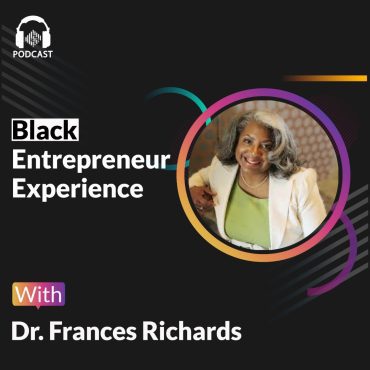
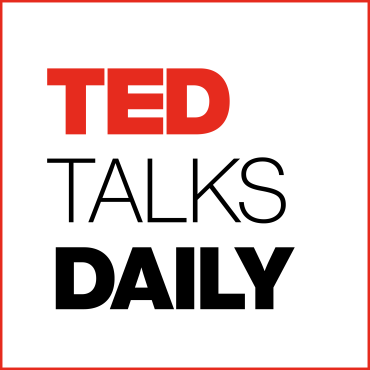




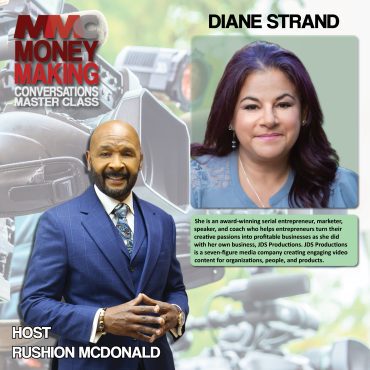


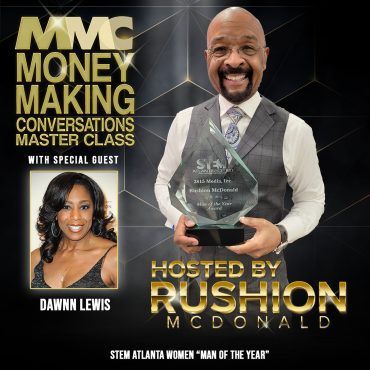
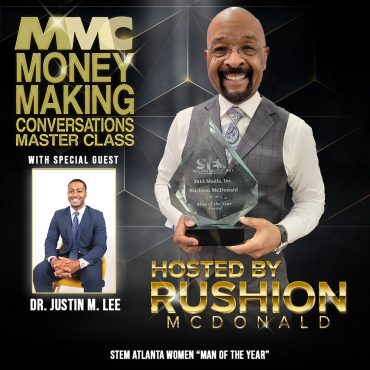
Copyright Blackpodcasting 2025